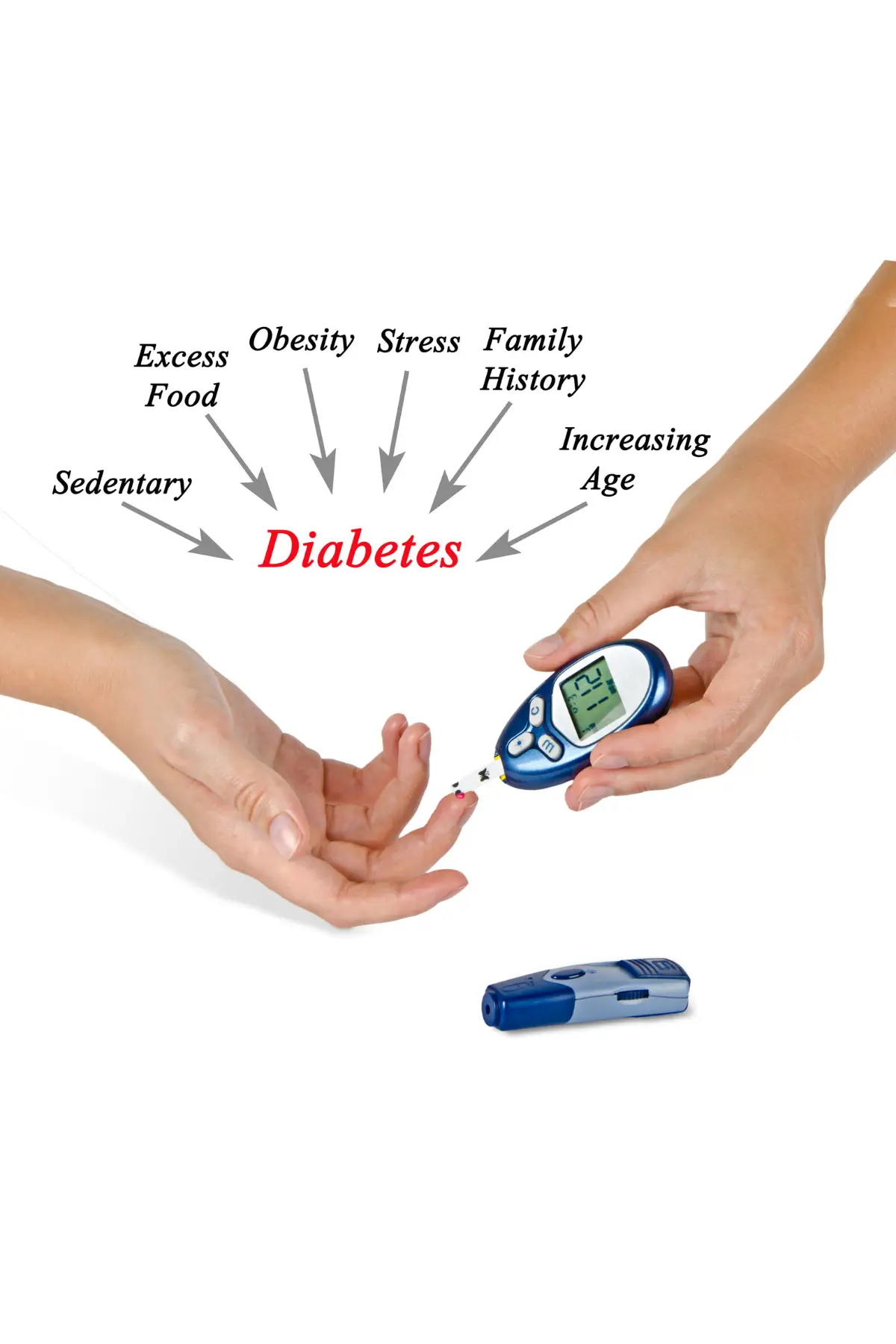Type 2 Diabetes is a chronic health condition impacting millions, but it doesn’t have to define your life. At WellConsulted, we believe true health empowerment begins with understanding. This condition occurs when your body either doesn’t produce enough insulin or, more commonly, doesn’t use the insulin it produces effectively—a phenomenon known as insulin resistance. This leads to elevated blood sugar levels, which, if left unaddressed, can lead to serious health complications over time.
While the statistics can be daunting, we’re here to guide you. The WellConsulted Diabetes Reversal Program offers a personalized, evidence-based pathway. It’s designed to help you not just manage, but potentially reverse Type 2 Diabetes by optimizing your body’s natural functions. We’ll empower you with the knowledge and tools to take control of your health and genuinely “Look, Feel, and BE Fantastic.”

A common question we hear is, “which is worse type 1 or type 2 diabetes?” or “is type 1 or type 2 diabetes worse?” It’s important to understand that Type 1 and Type 2 Diabetes are distinct conditions, each with its own challenges. Neither is inherently “worse”; they simply have different underlying causes and management approaches.
This is an autoimmune condition where your body’s immune system mistakenly attacks and destroys the insulin-producing cells in your pancreas. This means your body produces little to no insulin. Type 1 diabetes typically develops in childhood or adolescence, and individuals require lifelong insulin therapy.
As we discussed, this involves insulin resistance or insufficient insulin production. It’s often linked to lifestyle factors like diet and exercise, and usually develops in adulthood, though it’s increasingly seen in younger individuals.
No, these conditions do not “turn into” each other. They are fundamentally different diseases. While someone with Type 2 Diabetes might eventually need insulin therapy if their pancreas can no longer produce enough insulin, this doesn’t mean their Type 2 has become Type 1. They remain distinct diagnoses.
Understanding these distinctions helps clarify your health journey and ensures you receive the most appropriate care. At WellConsulted, we focus on empowering you to prevent, manage, and potentially reverse Type 2 Diabetes by addressing its root causes through personalized, holistic strategies.
Understanding your risk for Type 2 Diabetes is a powerful first step toward prevention and proactive health. While some factors are beyond your control, many can be influenced through lifestyle choices.
Here are the most common factors that can increase your risk:
Weight and Body Fat: Being overweight or obese, especially with excess belly fat, significantly increases risk by promoting insulin resistance.
Inactivity: A sedentary lifestyle reduces your body’s efficiency in using insulin.
Family History: Having a parent or sibling with Type 2 Diabetes raises your genetic predisposition.
Age: Risk generally increases after age 45, though it’s rising in younger populations.
Race or Ethnicity: Certain groups, including African Americans, Hispanic/Latino Americans, American Indians, and Asian Americans, have a higher risk. For instance, according to the CDC, non-Hispanic Black adults are 60% more likely than non-Hispanic white adults to be diagnosed with diabetes, and Hispanic adults are 70% more likely.
Prediabetes: This means your blood sugar levels are elevated but not yet diagnostic for Type 2 Diabetes; it’s a critical warning sign often reversible with lifestyle changes.
Gestational Diabetes: A history of diabetes during pregnancy increases your future risk.
Polycystic Ovary Syndrome (PCOS): Women with PCOS often experience insulin resistance, raising their diabetes risk.
Knowing your individual risk factors allows you to make informed decisions. At WellConsulted, we offer comprehensive assessments to help you understand your unique profile and guide you toward effective prevention or management strategies. Ready to take a proactive step towards your health?


Type 2 Diabetes can develop subtly, with symptoms often easy to overlook. Being aware of these early signs can prompt timely testing and intervention.
Look out for these common, yet often subtle, symptoms:
Increased Thirst & Frequent Urination: Your body’s attempt to flush out excess sugar.
Increased Hunger: Cells aren’t getting enough glucose for energy, even after eating.
Fatigue: Feeling unusually tired or sluggish due to inefficient energy conversion.
Blurred Vision: High blood sugar affecting the fluid balance in your eyes.
Slow-Healing Sores & Frequent Infections: Impaired immune function and circulation.
Numbness or Tingling: An early indication of potential nerve damage.
Unexplained Weight Loss: Your body breaking down muscle and fat for energy.
If you notice any of these signs, it’s crucial to consult a healthcare professional. At WellConsulted, we offer comprehensive assessments to help you understand your risk and guide you toward proactive solutions.
Left unaddressed, high blood sugar from Type 2 Diabetes can silently inflict significant damage across your body, severely impacting your long-term health and quality of life. Proactive management is crucial to prevent serious complications.
Here are the key dangers associated with prolonged high blood sugar:
Cardiovascular Disease: Increased risk of heart attack, stroke, and high blood pressure due to damaged blood vessels.
Nerve Damage (Neuropathy): Leads to tingling, numbness, pain, and loss of sensation, particularly in the limbs.
Kidney Damage (Nephropathy): Can lead to kidney disease, potentially requiring dialysis or a transplant.
Eye Damage (Retinopathy): Risks include vision problems, blurred vision, and even blindness.
Foot Damage: Poor circulation and nerve damage increase the risk of infections, ulcers, and amputation.
Impaired Healing: Weakens the immune system and hinders the body’s ability to heal wounds.
Increased Risk of Other Conditions: Linked to a higher incidence of dementia and certain cancers.
These potential outcomes highlight why taking control of your health now is vital. WellConsulted’s Diabetes Reversal Program aims to mitigate these risks by addressing the root causes of Type 2 Diabetes, helping you restore optimal physiological function.
At WellConsulted, we are committed to helping you achieve your weight loss goals through a holistic and personalized approach. Our team, led by Dr. John Friedrichs, combines decades of clinical experience with a passion for empowering clients to achieve long-term wellness. Whether through Contour Light Therapy, nutrition counseling, personal training, or comprehensive medical evaluations, we provide the support and guidance you need to succeed.
For more information on weight gain treatment and other services, explore our website or contact our team at WellConsulted. Embrace a healthier, happier you with our expert care and holistic approach to wellness.